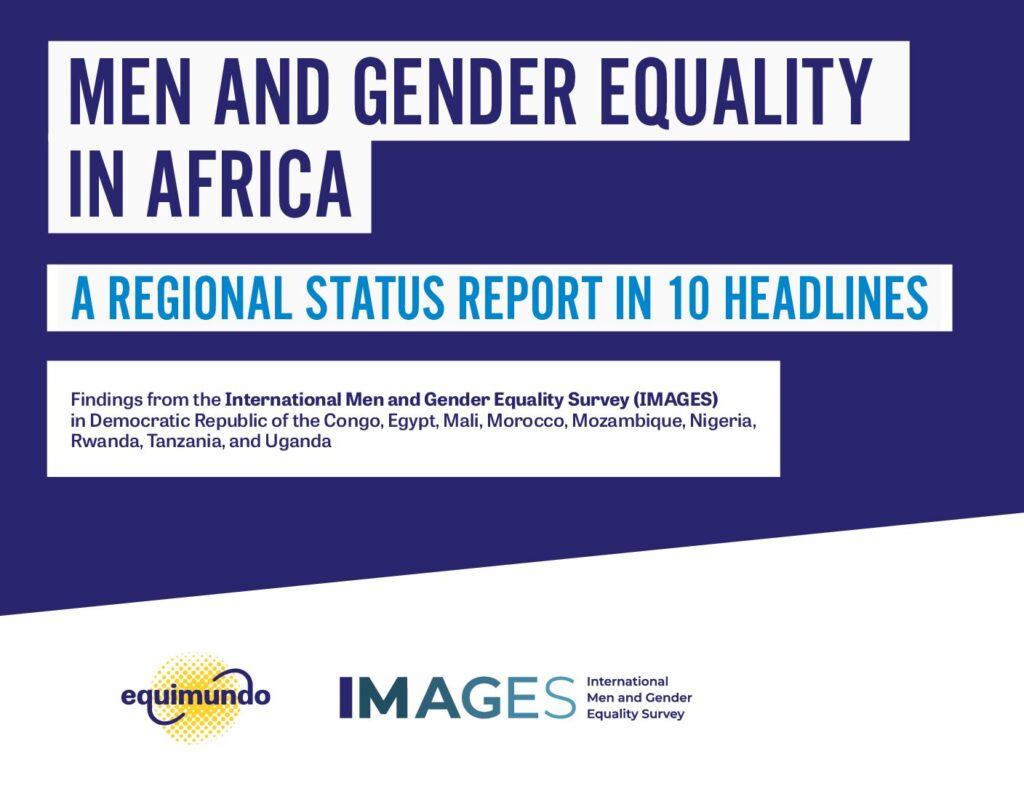In Africa, women have made gains toward gender equality. Women have become increasingly visible in politics, such as in Rwanda, which has the world’s highest percentage of women in its national parliament at 61 percent. Despite certain advancements, there remain other areas where progress has stalled or even reversed, and harmful practices remain common, such as female genital mutilation (FGM) and child marriage.
Behind all of these indicators and trends are the ongoing inequitable power, privilege, and gender norms related to men and women, masculinities and femininities. Indeed, women’s economic, social, and political inequality is inequality relative to men, whether it be men who hold political and economic power or men in their households and intimate lives. As such, the need for policies to support changing masculinities and men’s attitudes and behaviors is as urgent as ever. Furthermore, evidence shows that men and boys’ lives are also shaped by the gendered violence and expectations that they experience in their homes, schools, communities, and peer groups. And numerous studies have affirmed how men’s health and well-being are negatively affected by restrictive norms related to masculinity. What this suggests is that the harmful nature of certain masculinities impacts the women, girls, men, and boys who are raised, socialized, and living in situations where these norms are reproduced, generating tremendous power inequalities between men and women, and between a handful of powerful adult men and most younger men.
Against the backdrop of gains and setbacks for women and gender equality in Africa and a global backlash toward gender equality, it is imperative to ask: Where are African men on gender equality? What are their attitudes and day-to-day experiences? Are men reinforcing or resisting the idea of gender equality? How are these issues similar or different by country and cultural setting? How are men’s own lives affected by harmful norms related to masculinities? And importantly, how can the evidence that answers these questions be used to drive progress toward more equitable, caring, and nonviolent versions of manhood for the benefit of all?
These are questions that the International Men and Gender Equality Survey (IMAGES) global data, and the insights it provides into the African countries where the survey was implemented, can begin to answer. or politically dangerous to ask. This study, which presents survey data from nine countries, aims to illuminate specific themes that have been less explored in previous research, using responses from both men and women with a gender and masculinity lens – a methodological choice that sets our work apart.
